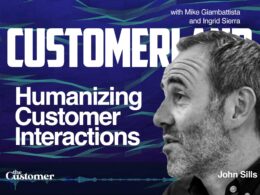Editor’s Note: Today marks the first in a regular series that Dave Frankland will be writing for TheCustomer. Dave literally wrote the book on the entitled consumer. His work has appeared in the New York Times, The Economist, CNN’s Situation Room, Ad Age and 1to1 Magazine. We’re looking forward to Dave’s unique ability to challenge, provoke, inform, and occasionally entertain. Welcome Dave!
I am an entitled consumer. I have high, maybe even unreasonable, expectations of brands. I want them to know me, value my attention and time, predict my needs, and deliver an experience that is both convenient and enjoyable.
And, I’m not alone. In research we conducted for Marketing to the Entitled Consumer, consumers were clear that they’ve had it with companies that treat them as “target customers” and serve them with generic marketing messages. We surveyed 7,000 people in six countries and found that that 74% “expect companies to treat me as an individual, not as a member of some segment like ‘millennials’ or ‘suburban mothers.’” And 70% told us that “when a company interacts with me, it’s important that they understand my current situation, and not just try to sell me their product.”
Here’s the thing, I don’t believe that being an “entitled” consumer is a pejorative concept. Quite the opposite – brands should want these types of relationships. In focus groups that we conducted with consumers across four countries, the brand that was mentioned more than any other as an example of a company that gets this right was Amazon. And, it makes sense — Amazon has long delivered a service that is reliable, quick, easy, convenient, and can even make you feel-good (if you use Amazon Smile).
Being an “entitled” consumer is not a pejorative concept.
But, my recent experiences with Amazon don’t live up to my entitled expectations. Apparently, I (or my family using my account) have placed 177 orders with Amazon in 2020. That averages to two orders every three days. Amazon has a fully automated email program that 1) acknowledges the purchase within seconds, 2) informs me when the items ship, and 3) informs me again when the item has been delivered. At first glance, this could be considered best practice.
The problem is that these transactional emails fail to tell me what’s in the order, unless I click on the email to get to Amazon’s site. It might sound petty to complain, but when you’re ordering something on average every 36 hours, it’s hard to keep track of the items that you’re waiting on. Of course, Amazon includes items that they recommend for you — and many are well targeted. The problem is that Amazon is failing to respect my time, provide me value, or demonstrate any customer empathy.
Other brands that I purchase from have made the confirmation emails fun, informative, and helpful. Amazon is suffering from what we call the “Transference of Entitlement” — when we encounter an experience we enjoy, we learn to count on it. Then we expect all other companies to step up and deliver the same experience. Then, as we begin to rely on it, we become disappointed when other providers don’t step up to offer it.
Amazon has traditionally raised the stakes in this customer experience arms race. Unfortunately, a global pandemic, resulting shutdown, and subsequent increase in engagement, has lowered my satisfaction buying from and interacting with this once-pioneering brand. Given its history, I don’t count Amazon out, but I do hope it gets back to putting me, the customer, at the center of everything they do.
Dave Frankland is co-author of Marketing to the Entitled Consumer. Dave helps brands turn unreasonable consumer expectations into lasting relationships. As a managing director in Winterberry Group’s consulting practice, he has helped hundreds of companies to develop business, customer, and organizational strategies. In previous roles, he served as Chief Strategy officer of Selligent Marketing Cloud, co-founded and led Forrester’s Customer Intelligence research practice, and has held various strategy and communication roles at brands and agencies.
Photo by Daniel Eledut on Unsplash.












2 comments